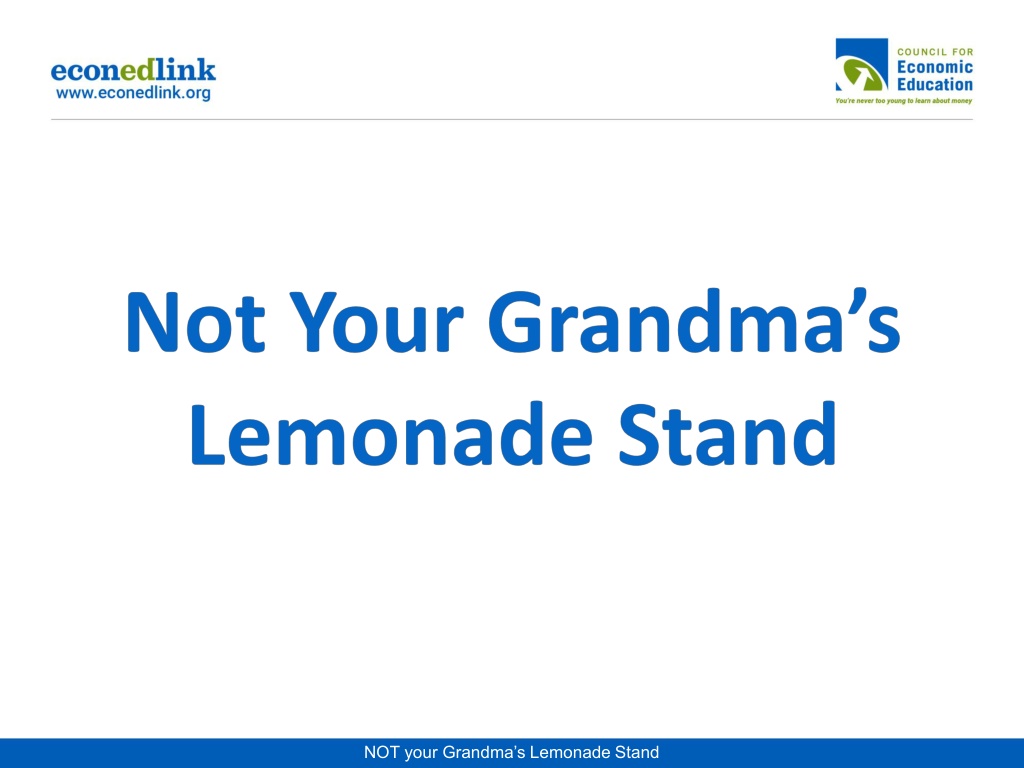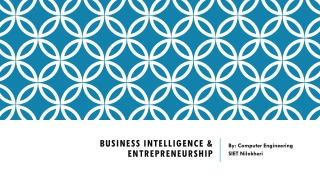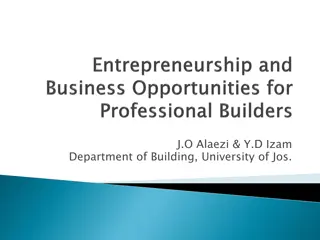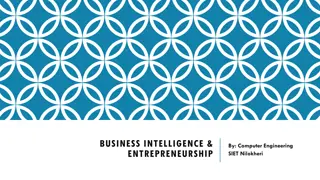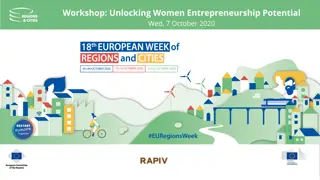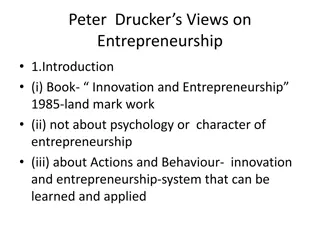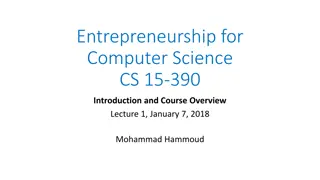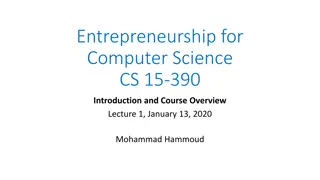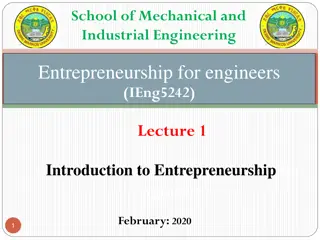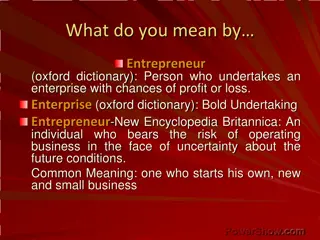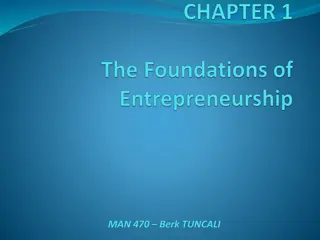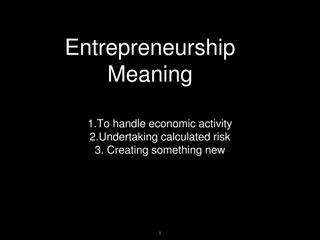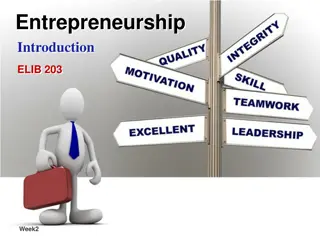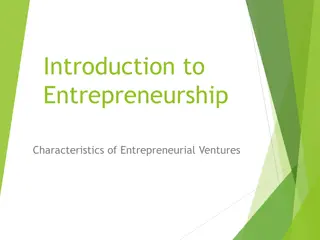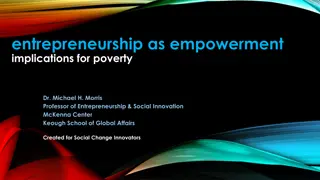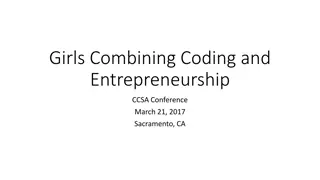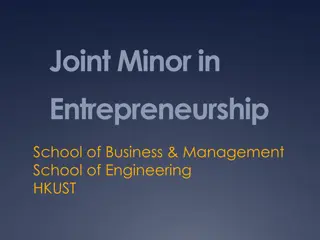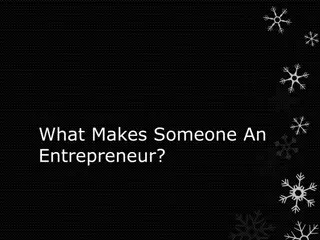Understanding Local Business and Entrepreneurship
Explore the world of local businesses and entrepreneurship, from owning a business to making crucial decisions like pricing and marketing. Learn about the roles of entrepreneurs, the concepts of supply and demand, and the dynamics of running a profitable business.
Download Presentation

Please find below an Image/Link to download the presentation.
The content on the website is provided AS IS for your information and personal use only. It may not be sold, licensed, or shared on other websites without obtaining consent from the author. Download presentation by click this link. If you encounter any issues during the download, it is possible that the publisher has removed the file from their server.
E N D
Presentation Transcript
Do your parents, your friends or someone else you know own a local business? Examples may be lawyers, plumbers, store owners, restaurants, etc. NOT your Grandma s Lemonade Stand
Anyone who owns a business may be called an entrepreneur. What does that mean? What do they do? NOT your Grandma s Lemonade Stand
Entrepreneurs must make many decisions: What to sell Prices How much to order How to market or advertise Many others! NOT your Grandma s Lemonade Stand
Business Any activity or organization that produces or exchanges goods or services for a profit. Resources Natural resources, human resources, capital resources, and entrepreneurship used to make goods and services. Costs An amount that must be paid or spent to buy or obtain something as in How much do those shoes cost? Also the effort, loss, or sacrifice necessary to achieve or obtain something as in learning to play that violin will cost you long hours of effort. NOT your Grandma s Lemonade Stand
Consumers People who use goods and services to satisfy their personal needs and not for resale or in the production of other goods and services. Producers People and firms that use resources to make goods and services. Price The amount people pay when buying a good or service. NOT your Grandma s Lemonade Stand
Demand The quantity of a good or service that consumers are willing and able to buy at given prices during a period of time. Supply The quantity of a good or service that producers are willing and able to sell at given prices during a period of time. Profit The money a business has left over after selling its goods and services and paying its costs of production. Not to be confused with revenue. NOT your Grandma s Lemonade Stand
In what ways did you succeed with your lemonade stand? How or when did you fail? What was your profit or loss? What would you do differently? What advice did you follow? How did the buyers affect the price you charged? How did your pricing affect the numbers of buyers? What choices did you have to make? What did you gain by those choices and what did you give up? What are the risks taken by the entrepreneurs? NOT your Grandma s Lemonade Stand
Were you more successful this time? What changes did you make? How did those changes impact your profits or losses? What did you learn that was different from the first time? NOT your Grandma s Lemonade Stand
What did you like about running your own business? What did you dislike about running your own business? What was the greatest challenge of running your business? What did you learn from this activity? Would you like to be an entrepreneur? NOT your Grandma s Lemonade Stand
